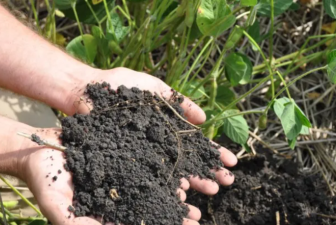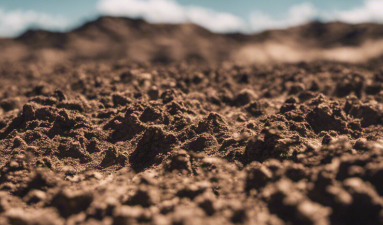Soil, the foundation of all life and the source of life, not only carries the vital mission of sustaining human life but also serves as a stronghold for crop roots, continuously supplying essential nutrients to all living things.
Soil's ecological functions are crucial. It not only provides food and fiber for human survival but also supports various agricultural production and ecological services, profoundly impacting the ecological environment and human survival. Furthermore, as Earth's largest reservoir of organic carbon, soil plays a key role in mitigating climate change. Furthermore, soil performs multiple functions, including water distribution, maintaining the gene pool of soil organisms, and purifying the air. Therefore, soil health directly determines the proper functioning of these functions, and thus, human health.
Soil's important role in our lives:
- Agricultural Production
Soil is the foundation of agricultural production and is directly related to food production and quality. Soil research allows us to understand soil fertility, nutrient content, and pH, enabling us to apply fertilizers appropriately, regulate soil pH, improve soil fertility, and increase crop yields. Soil research also examines soil moisture retention and drainage, providing a scientific basis for irrigation and drainage, improving water use efficiency and ensuring the normal growth of crops.
- Environmental Protection
Soil studies the physical, chemical, and biological properties of soil, understanding its adsorption and desorption processes, and providing important scientific evidence for the migration and transformation of pollutants. Soil research allows us to understand soil's adsorption capacity for pollutants, providing technical support for environmental pollution control and remediation. Furthermore, soil microorganisms play a vital role in environmental purification. Soil research can help us understand the diversity and functions of soil microorganisms, providing a scientific basis for bioremediation.
- Natural Disaster Prevention and Control
Soil studies the physical properties of soil and its water retention and retention capacity, which are crucial for natural disaster prevention and control. For example, soil water retention can buffer rainfall-induced flooding and reduce the occurrence of flood disasters; soil retention can prevent soil erosion and reduce the occurrence of disasters such as mudslides and landslides. Soil research can help us develop effective soil protection measures to mitigate the impact of natural disasters on humans and the ecological environment.
- Land Use Planning
Studying soil type, quality, and suitability provides a scientific basis for land use planning. Soil research helps us understand soil fertility and suitable crop cultivation conditions, develop rational land use plans, and improve land use efficiency. Pedology also studies soil drainage and bearing capacity, providing a scientific basis for urban planning and land development, and preventing problems such as land subsidence and pollution.
Soil Problems and Impacts
However, with the continuous advancement of human industrial, agricultural, and urban construction activities, soil problems in my country have gradually surfaced. Soil pollution is becoming increasingly serious, leading to reduced agricultural yields and declining quality. Furthermore, pollutants accumulate in plants and enter humans and animals through the food chain, seriously endangering human health. Furthermore, inappropriate fertilization practices in agricultural production often neglect the replenishment of essential trace elements for plants, leading to a more pronounced imbalance of trace elements in the soil and, in turn, a phenomenon known as "hidden hunger" for trace elements in the human body. These issues urgently need to be addressed.






